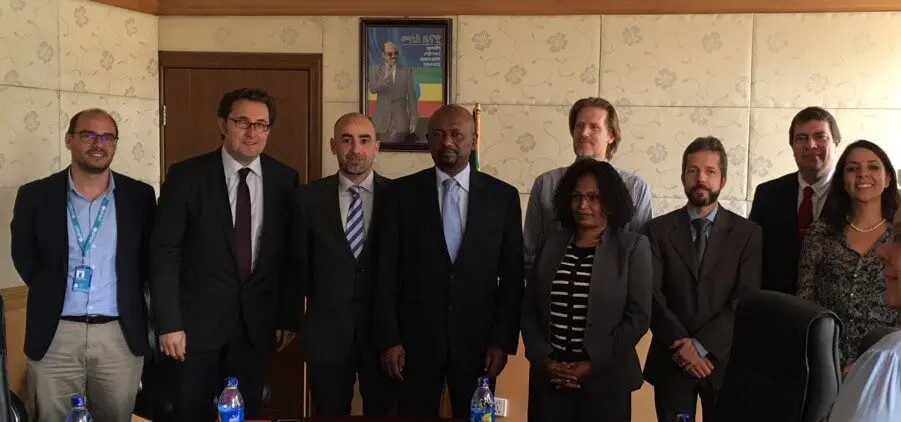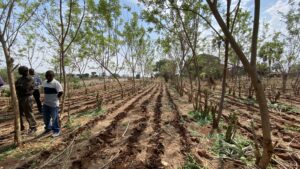WGF steers consultative towards Ethiopia’s first national regulation of water and sanitation services
The UNDP-SIWI Water Governance Facility (WGF) joined its forces with UNICEF Ethiopia country office and a high-level Brazilian delegation to address the regulation of water and sanitation services in Ethiopia.
The UNDP-SIWI Water Governance Facility (WGF) joined its forces with UNICEF Ethiopia country office and a high-level Brazilian delegation to address the regulation of water and sanitation services in Ethiopia. During the expert workshop, H. E. Dr. Seleshi Bekele, the MoWIE Minister for Water, agreed that WGF will take a seat within an international advisory board along with UNICEF Country Office to further guide and help the national team of consultants carrying this important work forward.
The three-day consultative expert workshop was hosted in Addis Ababa by the Ethiopian Ministry of Water, Irrigation and Electricity (MoWIE). The event gathered over forty principal national and subnational stakeholders under the framework of south-south cooperation between the governments of Brazil and Ethiopia.
In her opening speech H.E. Ms. Frenesh Mekuria, Ethiopian State Minister expressed deep gratitude to the Brazilian Government for its contributions to the south-south framework. At the same time the Minister stressed an importance of WGF being involved within the process, aimed to help national stakeholders to shape and establish the first regulation of water and sanitation services in Ethiopia. The WGF and UNICEF were acknowledged as key expert partners in helping to steer this process and achieving milestone institutional change within Ethiopia.
Structured around a range of presentations, the event successfully allowed national stakeholders to outline the current water and sanitation regulatory settings at national, regional and utility level. Mr. Mario Monteiro, heading the regional regulatory body of Ceara, part of the Brazilian delegation along with the Ministry of Cities, explained water supply and sanitation service delivery realities in Brazil while emphasizing a necessity for flexibility with regard to different models and options.
WGF interventions focused on regulation and accountability. Principal elements, challenges and mechanisms of regulatory functions were outlined ensuring a common understanding about regulatory concepts and modalities with regard to its main economic functions such as tariff setting, service quality competition or consumer protection. Examples of regulatory frameworks coming from Kenya, Zambia, Tajikistan and Laos were among those offered to participants to illustrate more or less optimal regulatory settings. The participants were invited to propose their own views on Ethiopian regulatory functions in terms of who should regulate different economic functions at national, regional, zonal and local level.
Accountability, captured as a matrix of roles and responsibilities, was presented and shared in the course through an interactive exercise that saw participants pick the most relevant roles and aspects to be improved when it comes to service providers, users or authorities. This exercise reconfirmed the importance of the accountability as a safety net in those circumstances where the regulatory entity is not performing efficiently, or, as a pre-condition for a non-existing regulatory framework to become operational in cases such as Ethiopia.
The expert workshop was completed by an adoption of the Terms of Reference for the national consultancy team to take further the agreed tasks leading toward Ethiopia’s first regulation of water and sanitation services.








